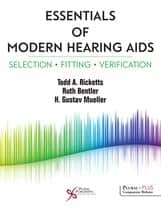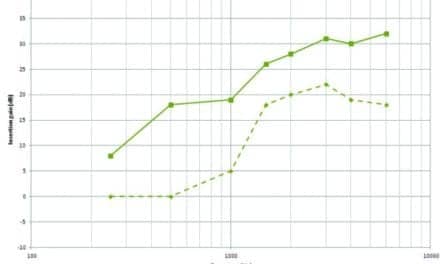A new poll from the University of Michigan shows parents are strongly in favor of required hearing screenings for kids all the way up to age 17.
The University of Michigan Mott Children’s Hospital National Poll on Children’s Health recently asked a nationwide sample of parents about whether they’d support requirements for hearing screening and where they’d prefer to have the screening done.
Overall, two-thirds of parents who have children under 17 years old support hearing screening across all age groups. In the poll, 77% supported required hearing screening for 2- to 3-year-olds; 82% were in support for 6- to 7-year-olds; 71% for 10- to 11-year-olds; and 67% for 16- to 17-year-olds.
“Screening in preschool and elementary school-age children is routine in many states. That screening is 
“What was surprising about the poll results was the overwhelming support for required hearing screening for older children and teenagers,” says Handelsman.
“Hearing screening for tweens and teens is uncommon. However, as the parents in our poll recognize, children in these age groups may develop hearing loss as time goes on, possibly from extended listening to loud noise, such as through personal, portable listening devices like MP3 players,” Handelsman says.
Handelsman says that the poll results are encouraging because they show parents recognize the need for continual screening. A student might pass the hearing tests as a kindergartener, but develop hearing loss or hearing problems at a later age.
The inspiration for a national poll related to childhood hearing came from Marci M. Lesperance, MD; division chief of pediatric otolaryngology at the University of Michigan Health System.
“We really wanted to know how parents felt about requiring hearing screenings, and no one had asked the public about this before,” says Lesperance. “Hearing screenings are usually managed through public health departments, and as government budgets are squeezed, funding for these screenings is at risk.”
The poll also found that parents are more likely to prefer the primary care office for the hearing screening in preschoolers and 6- to 7-year-olds, and they prefer a school-based screening for tweens and teens.
Matthew M. Davis, MD, MAPP, director of the C.S. Mott Children’s Hospital National Poll on Children’s Health and associate professor of pediatrics and internal medicine in the Child Health Evaluation and Research (CHEAR) Unit in the University of Michigan Health System, commented, “There is strong support for a more comprehensive approach to hearing screening among older children, largely based in school settings. Given the importance of hearing for success in learning and development, and the competing priorities we have for health care, we need parents to be advocates for their children on this issue.”
Download the full report: C.S. Mott Children’s Hospital National Poll on Children’s Health




